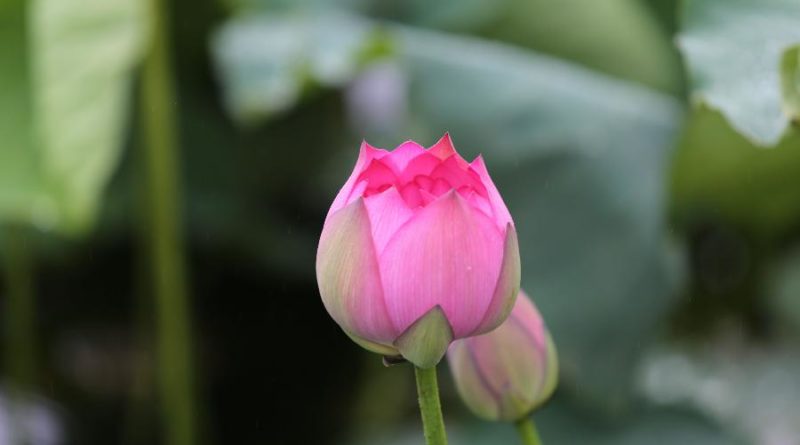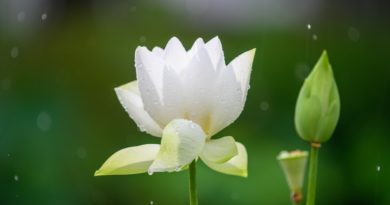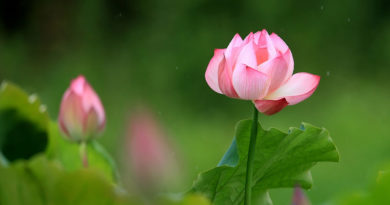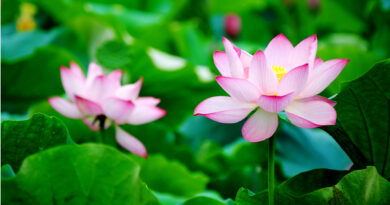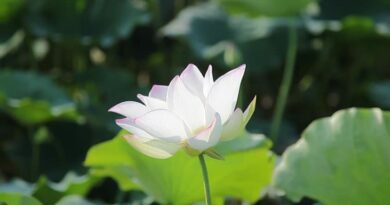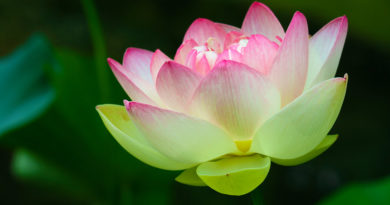A LIFE FREE FROM MONEY – PART 2. THE FAULT IN ACCEPTING MONEY
A LIFE FREE FROM MONEY – PART 2. THE FAULT IN ACCEPTING MONEY
Before he passed away the Buddha said that after his death the sangha, if it wanted to, could revoke the lesser and minor rules of the Vinaya. Some bhikkhus quote this as a reason to support their acceptance of money, but the following quotes from the suttas show that the rules prohibiting money are not lesser or minor rules. The money rules are shown by these quotes to be fundamental and essential for the attainment of enlightenment. Maniculaka Sutta (Samyutta Nikaya, Salayatana Samyutta, Gamani Vagga, sutta no. 10):
At one time, the Blessed One was living in Rajagaha in the place where squirrels and birds were fed called Veluvana. At that time in the king´s palace, the king´s retinue were assembled and whilst assembled this conversation arose amongst them:
`Gold, silver, and money are allowable for those monks who are the sons of the Sakyan prince (the Buddha). Those monks who are the sons of the Sakyan prince consent to gold, silver, and money. Those monks who are the sons of the Sakyan prince accept gold, silver, and money.´
Then at that time Maniculaka the village headman was sitting present in that assembly and he spoke to that assembly saying:
`Good sirs, do not say that. Gold, silver, and money are not allowable for those monks who are sons of the Sakyan prince. Those monks who are the sons of the Sakyan prince do not consent to gold, silver, or money. Those monks who are the sons of the Sakyan prince do not accept gold, silver, and money. Those monks who are the sons of the Sakyan prince have renounced gold and gems and are without money.´
But Maniculaka the village headman was unable to convince that assembly.
Then Maniculaka the village headman went to the Blessed One, and having approached the Blessed One bowed to him and sat down at one side. While sitting at one side Maniculaka the village headman said to the Blessed One:
`Venerable Sir, in the king´s palace the king´s retinue were assembled… (He repeated all that had been said above.)… But Venerable Sir, I was not able to convince that assembly.
`Venerable Sir, by thus explaining am I one who speaks what is said by the Blessed One or have I falsely misrepresented the Blessed One? Have I answered in accordance with this Teaching or would someone speaking in accordance with this Teaching find reason to blame me?´
(The Blessed One:) `Truly you, headman, by thus explaining are one who speaks what is said by me and did not falsely misrepresent me. You have answered in accordance with this Teaching and someone speaking in accordance with this Teaching would not find reason to blame you.
`For, headman, gold, silver, and money are not allowable for those monks who are the sons of the Sakyan prince. Those monks who are the sons of the Sakyan prince do not consent to gold, silver, or money. Those monks who are the sons of the Sakyan prince do not accept gold, silver, or money. Those monks who are the sons of the Sakyan prince have renounced gold and gems and are without money.
`Headman, for whoever gold, silver, or money are allowable then for him the five types of sense pleasure are allowable. For whoever the five types of sense pleasure are allowable you can be certain, “He does not possess the nature of a monk, he does not possess the nature of a son of the Sakyan prince.”
`Headman, really I say this, “By a monk who needs grass, grass can be searched for. For a monk who needs timber, timber can be searched for. For a monk who needs a cart, a cart can be searched for.” But, headman, I also say, “In no way whatsoever can gold, silver, or money be accepted or searched for.”´
The next quote from the end of Upakkilesa Sutta (Anguttara Nikaya, Book of Fours, Rohitassa Vagga, sutta no. 10) demonstrates that accepting money leads to continued rebirth.
`Stained by lust, anger, and blinded by ignorance
some monks and brahmins take delight in sense pleasures.
Those foolish monks and brahmins drink alcohol,
engage in sexual intercourse,
accept gold, silver, and money,
and obtain their requisites by wrong livelihood.
All of these are called corruptions by the Buddha who shines like the sun.
Those foolish monks and brahmins who are corrupted by these corruptions,
impure, and defiled, do not blaze or shine.
But instead bewildered, blinded, slaves to desire, and full of craving
they increase the size of cemeteries by taking birth again and again.´
In these suttas the Buddha has equated the acceptance of money with the indulgence in sense pleasures. In the Dhammacakkappavattana Sutta the Buddha clearly instructs:
`These two extremes, bhikkhus, should not be practised by one who has gone forth. Which two? Indulgence in sense pleasure which is low, the way of villagers, the way of ordinary people, the way of the unenlightened, and unprofitable; and self-mortification which is painful, the way of the unenlightened, and unprofitable.´
It is taught that even a layperson who is an anagami (non-returner) keeps the ten precepts naturally and does not accept or use money. For example the anagami Ghatikara was without gems, gold, silver, or money, and made his living by taking earth that had eroded from the river bank and making it into pots. These pots he left at the side of the road and anyone who wished could leave a suitable amount of rice or food and take the pots. In this way Ghatikara supported himself and his blind parents. (See Ghatikara Sutta of Majjhima Nikaya.)
This demonstrates how money is an impediment to enlightenment and how the truly enlightened do not use money. The above quotes all prove that the acceptance of money by monks is not a small fault, and that it can render a monk incapable of attaining Nibbana.

